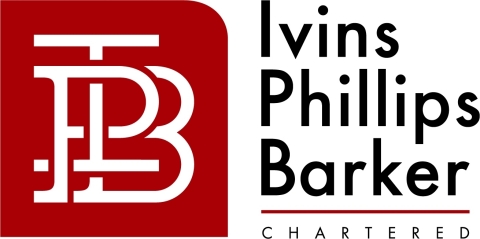Code Section 4960 Excise Tax on Excessive Compensation to Employees of Tax-Exempt Entities
Code Section 4960 Excise Tax on Excessive Compensation to Employees of Tax-Exempt Entities
Proposed IRS Regulations Address Concerns Raised by IPB's Comment Letter
WASHINGTON--(BUSINESS WIRE)--IPB is pleased that Code Section 4960 regulations proposed by the IRS on June 5, 2020, were responsive to several key issues IPB raised on behalf of its clients. IPB was concerned that the IRS would apply Code Section 4960 expansively to impose excise tax on companies or individuals that maintain related foundations or other types of tax-exempt entities. In particular, the initial IRS guidance threatened to tax companies simply because their executives or other employees volunteered with a company-affiliated charity or served in a leadership “officer” role for the charity. The IRS would have imposed the tax on all compensation from the company, not just pay attributable to services provided to the tax-exempt entity. IPB raised these concerns in one of the earliest and most comprehensive public comments submitted in response to IRS Notice 2019-09.
The proposed regulations offer relief in three areas that address IPB’s concerns. As expected, however, the IRS doubled down on its view that officers of a tax-exempt entity are automatically considered employees that could trigger the tax.
(1)
|
Nonexempt Funds Exception. The IRS’ original approach under Notice 2019-09 would have imposed excise tax on a company whose employees volunteered as officers of a related tax-exempt entity (such as a company foundation), even if no compensation was paid from the tax-exempt entity to the officers. IPB’s comment was the only letter to explain that this approach was incompatible with Congress’s stated concern in enacting Code Section 4960 – that tax-subsidies to a tax-exempt organization not be used to support excessive pay. In the new proposed regulations, the IRS recognized IPB’s concern and proposed a “nonexempt funds exception.” Under this exception, companies can be assured that no excise tax will apply if, among other things, they show that the foundation does not pay the employee’s wages or reimburse the company (directly or indirectly) for the employee’s pay. |
|
|
||
(2)
|
Limited Hours Exception. IPB proposed a volunteer safe harbor that would exempt a company from potential taxation when its employees provide unpaid services to a tax-exempt entity up to a fixed number of days per year (e.g., 30 days) or hours per year (e.g., 250 hours). The IRS adopted this suggestion with a “limited-hours” exception. Under this exception, an individual will not be counted as an employee that triggers the Section 4960 tax if the individual is not paid by the tax-exempt entity, and either provides no more than 10% of their hours of service to the tax-exempt entity or performs at most 100 hours of service per year for the tax-exempt entity. We expect that this exception will be useful to a large contingent of companies whose executives serve part-time in officer roles with their related foundations. |
|
|
||
(3)
|
Exception to Expansive Control Definition. IRS Notice 2019-09 proposed treating any tax-exempt entity as “related to” a corporate or other taxpayer if the entity was controlled by common “representatives” of that taxpayer. Because the IRS defined “representative” to include any employee, companies could end up with “related” non-profits that they have absolutely no control over. For example, a Major League Baseball player’s private foundation would be deemed related to the team that he played for, and a corporate executive’s family foundation would be deemed related to the company or companies she worked for. Similarly, a Hollywood actor’s foundation would be deemed related to the company she worked for (whether a studio or production company, or her own loan-out company). The IRS acknowledged this concern and proposed allowing organizations to qualify for an exception from control status. |
Contact us. If you have questions on these or other Section 4960 issues, we would be happy to hear from you. Please contact Kevin O'Brien, Spencer Walters, Robin Solomon, or any other member of the IPB Compensation & Benefits or Exempt Organizations practices.
Contacts
Amanda Ferrari
aferrari@hellermanllc.com
440-465-6162
